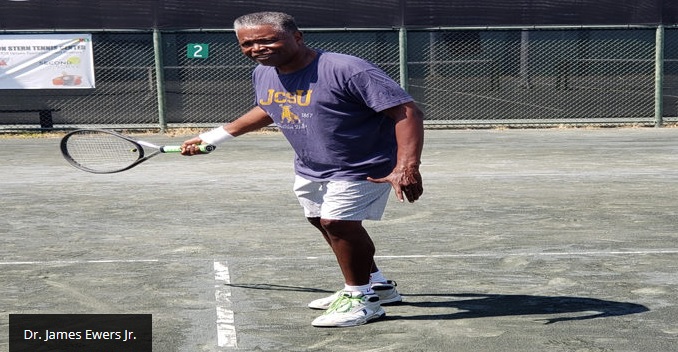June 6, 2021
WINSTON-SALEM'S THE CHRONICLE: Class of 2021 Inductee Dr. James Ewers, Jr., "Hometown Hero Reflects On A Life Well Lived"
June 06, 2021
“I started playing with one of my dear friends named William Earl and
he and I were really the only guys playing tennis at the Skyland
School, because everyone else was playing basketball,” said Dr. Ewers.
“I grew up playing basketball, and playing baseball, and swimming, and I
did all of that stuff. But I think the draw that brought me to tennis
was that it was different and I didn’t see a lot of people playing it.
Subscribe to:
Post Comments
(Atom)
Search This Website









This was a really inspiring story, and a joy to read! Dr. James Ewers, Jr. certainly has lived a full life, and yet is a humble man. We should all aspire to this.
ReplyDelete